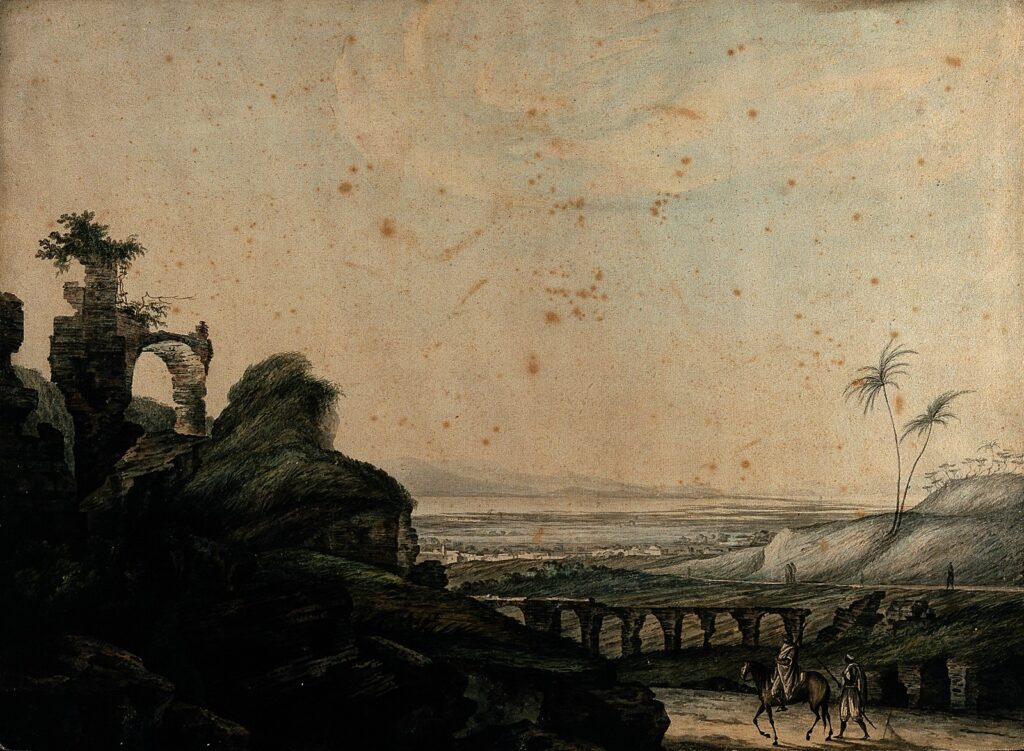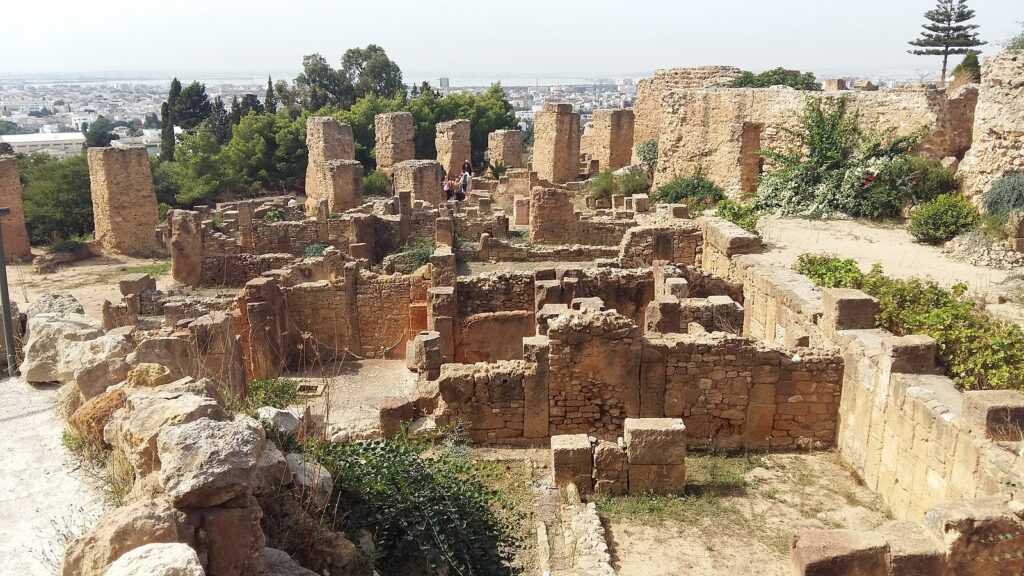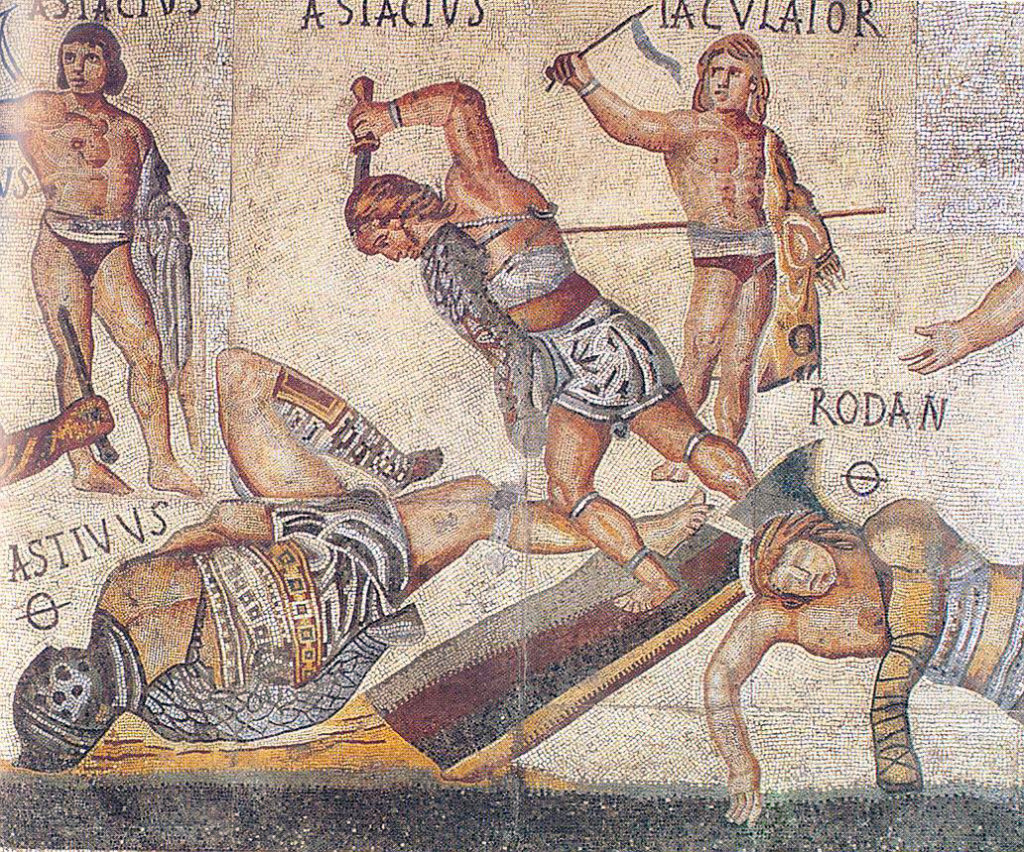To salt the earth means to destroy it. Unlike other means of destruction like flood or fire, salting the earth is much more permanent.
Fire can fertilize the land with ash, and floods can hydrate it. But with salt, there is no hope for regrowth.
Ancient accounts explain that when the Romans conquered the city of Carthage in 146 BCE, they burned it to the ground as was expected. Once that was done, they walked the great city and sprinkled salt over the ground of Carthage.
This was both a ritual of victory, but it also kept anything from ever growing on the land again. Is this tale of the salting of Carthage true, or simply a legend?

The City of Carthage and the Punic Wars
The salting of Carthage is such a notorious story because of how much of a power Carthage was before its destruction. Situated on the North African coast, Carthage was an important maritime city. It boasted impressive architecture.
Its location made it a hub for trade but also left it open to attacks by sea. Because of this, Carthage had a robust navy of its own to protect the city.
Being such a large and impressive city, it wasn’t a surprise when Carthage began to expand its borders. One area of particular interest was Sicily, but another powerhouse had its eyes on the large island as well–the Roman Republic.
Thus began the Punic Wars, three brutal and bloody conflicts that would end with Rome defeating Carthage. It would destroy the beautiful city once and for all.
Rome and Carthage clashed not only over Sicily, but control of the entire Mediterranean. At first, it looked like Carthage would have the upper hand since Rome had no navy, but that quickly changed. The new Roman navy was relentless and devastatingly effective.
There were three main conflicts during the Punic Wars. It was during the third conflict that Rome was able to breach the defenses of Carthage and enter the city.
The Fall of Carthage
Roman General Scipio Aemilianus led the troops that defeated Carthage. Once their victory was certain, the Romans began the sacking of the city under his command.
They took valuables while going from house to house, forcing the survivors from their homes and enslaving them. Once the city was clear, Aemilianus had it burned to the ground. He also commanded that all the Carthaginian ships be pulled from the water and torched.

After the fires burnt out, Roman soldiers walked the land and meticulously salted the earth. Legend has it that salting the earth was as much of a ritual as it was a true way of devastating the land for future inhabitants.
Salt was a final sign that a city had been conquered. After hundreds of years of fierce battle, it’s no surprise that Rome would want to salt the earth where Carthage once stood.
The Curse of Carthage and the Myth of Salting the Earth
Salt being perceived as something to kill the earth wasn’t a new idea when Carthage fell. It had been used by conquering forces in other places quite a few times before.
Most notable was the salting of Shechem which was mentioned in the Old Testament. Modern experts suggest that the salting of Carthage was simply a retelling of the biblical salting of Shechem.
What may come as a surprise is that salting the earth might be more mythological and less about outright destruction. Legend suggests that the vengeful Romans sowed the fields of Carthage with salts to annihilate it for generations to come.
But some of the earliest descriptions of Romes’s defeat over Carthage don’t mention salt at all. The earliest source on the Punic Wars, Polybius, mentioned the sacking of Carthage but not salt.
Similarly, Appian of Alexandria spoke of Carthage burning, but there was zero mention of salt. Salt was, and still is, an important part of civilization. But salting the earth may have been less about killing the land, and more a symbolic idea to convey absolute dominance.
The first mention of the salting of Carthage was in The New American Cyclopedia: a Popular Dictionary of General Knowledge written by D. Appleton. The mention that is most responsible for the salting myth may be in the 1930s Cambridge Ancient History, where it appeared in an article written by Bertrand Hallward and was believed by most readers to be factual.
This isn’t to say that the conquering of Carthage was any less devastating just because salt might not have been involved. Rome destroyed the city with such methodical and complete precision.
Their actions would come to be known as the Curse of Carthage. After the Romans were done with the city, the land would be cursed to never be settled again.

Does Salting the Earth Really Work?
Despite the myth of Carthage being salted and cursed, it was swiftly resettled by none other than the Romans themselves. Since it’s believed that the fields of Carthage weren’t really salted, it isn’t a surprise that the prime coastal land was quickly put back into use.
If Carthage had been salted, would it have truly destroyed the land forever? The answer is complex.
Salting the earth does kill a large amount of plant life that may be present because the salt leeches water from the plants that they need to survive. Because of this, crops can’t be planted on freshly salted land. But the important distinction there is freshly salted.
Over time, salt will be washed out of the soil. Even heavily salted land will be usable again after enough rainfall.
In the short term, it could certainly devastate farmland and ruin future crops for a time. But the land will recover once enough time has passed.
References
“Salt as Curse in the Old Testament and the Ancient Near East
“Appian, The Punic Wars 27”
https://livius.org/sources/content/appian/appian-the-punic-wars/appian-the-punic-wars-27/#132

